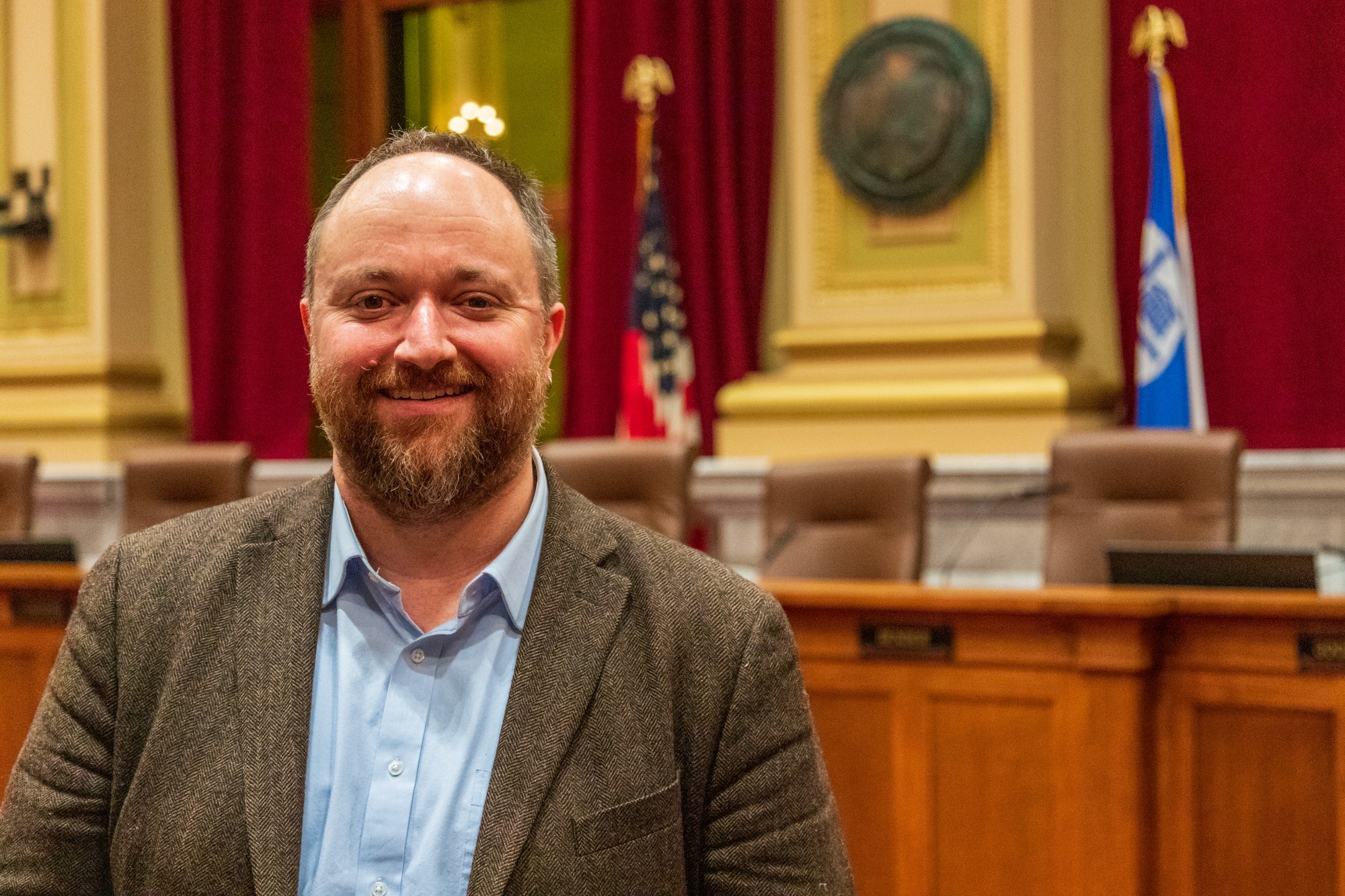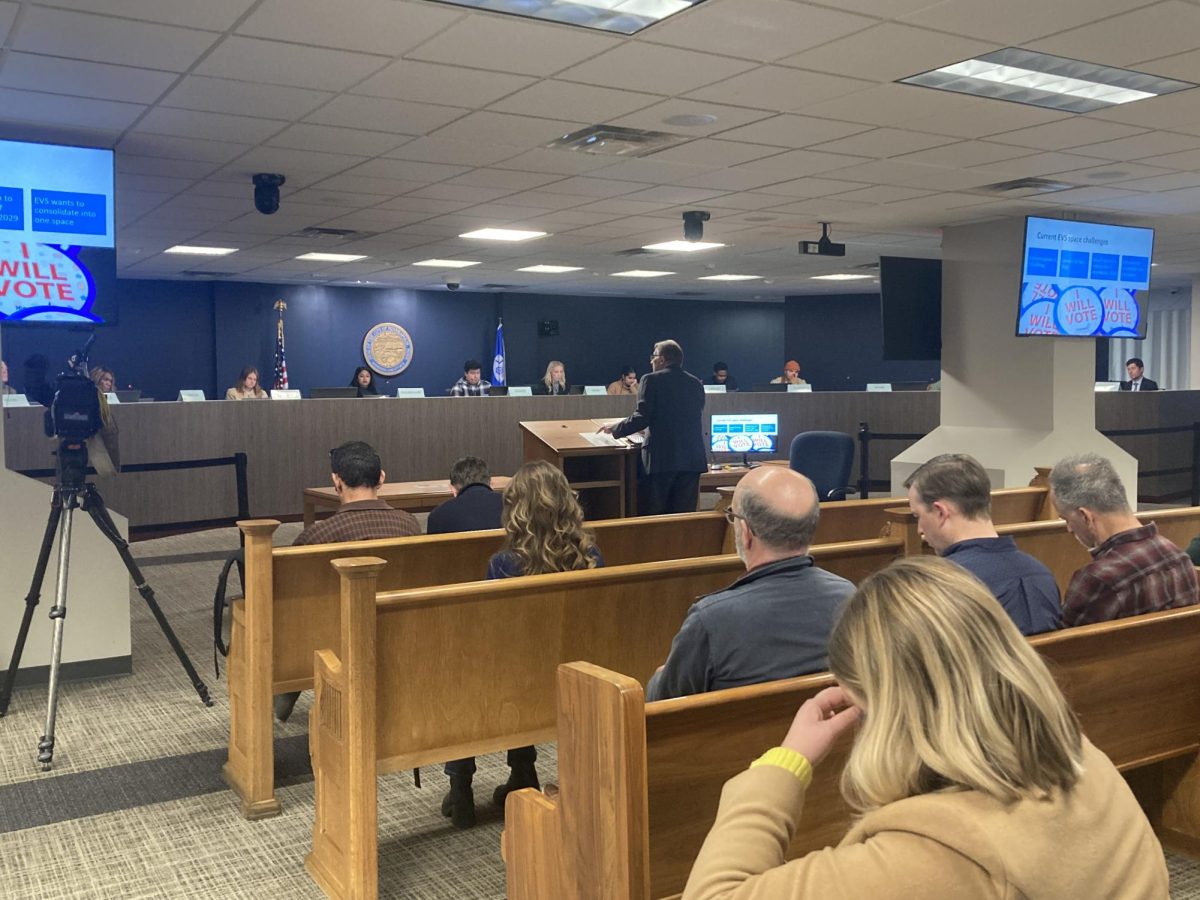When Steve Fletcher was elected to represent Ward 3 in Minneapolis, he was struck by an immediate problem.
Seventeen cameras were left operational following heightened security from Super Bowl LII, alongside more than 200 existing cameras around the city. His prior background in technology consulting especially sensitized him to the issue of facial recognition and how Minneapolis uses, collects and stores resident data.
This week, Fletcher championed a new set of data privacy principles for Minneapolis — the first of their kind in the city. The principles were proposed and unanimously approved at the Feb. 6 Minneapolis Enterprise Committee meeting. They will go to the full City Council for vote Feb. 14.
Starting with broad strokes
As it stands, the City of Minneapolis collects a multitude of data from residents: everything from your water bill to your property taxes to notes from calls placed to your council member’s office.
However, as Fletcher’s proposal acts as the first official steps in a conversation about data privacy expected to continue well into the future, the principles are broad strokes.
“This is the first time that the City Council is ever saying data privacy is something that the city cares about,” Fletcher said. “What we’re saying is, [city employees] have to consider data privacy as one of the factors you think about when you think about whether this is a good technology to use.”
The city also works with private companies that may collect data.
For example, the city’s public works department has recently worked with electric scooter companies, which collect data on each rider. Fletcher said the city has made sure the data is anonymized and no personal information is tracked.
He said other companies have approached the city with ideas like interactive kiosks and “smart parking” meters that can detect license plates, and he wanted to get ahead of the conversation.
The principles are “aspirational” and “high level,” said Christian Rummelhoff, assistant city clerk in the clerk’s records and information management office, at the Enterprise Committee meeting. While they are not a policy or ordinance, they will be used to guide decision making in future city endeavors.
Fletcher echoed this and said the city must first set a foundation of underlying principles before stepping into policymaking around issues like facial recognition.
He’s waded deep into the facial recognition discussion and said the technology has its issues. For example, Fletcher said facial recognition software can “produce more false positives on people of color than it does on a white people,” which is especially problematic with an already over-policed community.
A balancing act
The principles also emphasize a desire for open and transparent government. Minneapolis officials said they hope to protect personal information, but city data is guided by state law and open government policies.
Minneapolis leading the charge on data privacy could also spark broader change.
“The state can learn, for instance,” said Matt Ehling, executive director of the open government advocacy organization Public Record Media. “If Minneapolis takes a stand on how they want to regulate their use of facial recognition technology, that can be an example for what the state could do.”
In the business world, it’s commonplace to sign non-disclosure agreements during negotiation. Fletcher said this can be problematic when a private company is working with a public government, which are supposed to be open and transparent.
“We should have some guidelines about what we’ll protect and what we’ll be transparent about,” Fletcher said.
But, he said, it can be a balancing act between privacy and effectiveness.
“If we have video of someone committing a crime and we want to know who that person is, would we use facial recognition to identify that person?” Fletcher said.
However, Fletcher said he opposes anything that tracks people walking down the street: “We shouldn’t be using it to locate people. We shouldn’t be using it to create a record of where people go.”








